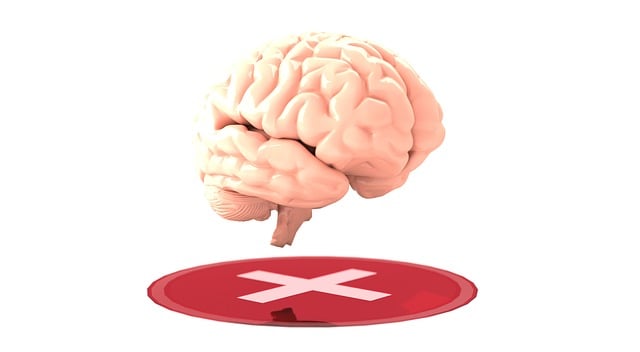In today's diverse healthcare setting, especially in communities like Lakewood, cultural competency is crucial for providers, particularly with the rise of dialectical behavioral therapy (DBT) in mental health care. Effective communication strategies and risk management planning are vital tools to build trust and improve therapeutic outcomes, creating a safer and more inclusive environment. The Lakewood DBT program offers unique cultural sensitivity training through individual skill development and group therapy, focusing on mindfulness, emotional regulation, and stress management. Designing effective training programs incorporating evidence-based practices like DBT equips professionals with skills to support patients' emotional well-being while respecting diverse traditions and beliefs. Continuous improvement within healthcare organizations, including regular evaluations and participant feedback, ensures cultural competency remains impactful and aligned with evolving needs.
Healthcare provider cultural competency training is more than a nice-to-have—it’s a necessity in modern practice. As healthcare becomes increasingly diverse, understanding and respecting cultural differences can significantly improve patient outcomes and experiences. This article explores the importance of cultural competency, focusing on the impact of Lakewood Dialectical Behavioral Therapy (DBT) as a powerful tool for enhancing cultural sensitivity training. We also provide practical strategies for designing effective programs and ensure long-term success through implementation and continuous improvement.
- Understanding Cultural Competency in Healthcare: A Necessity in Modern Practice
- The Impact of Lakewood Dialectical Behavioral Therapy (DBT) on Cultural Sensitivity Training
- Designing Effective Training Programs: Strategies for Healthcare Providers
- Implementation and Continuous Improvement: Ensuring Long-Term Success
Understanding Cultural Competency in Healthcare: A Necessity in Modern Practice

In today’s diverse healthcare landscape, cultural competency is no longer an optional skill for providers; it’s a necessity. Cultural competency refers to the ability to understand, appreciate, and interact effectively with patients from different cultural backgrounds, beliefs, and values. This is especially crucial in communities like Lakewood, where dialectical behavioral therapy (DBT) practices have gained prominence in mental health care. DBT, known for its crisis intervention guidance, benefits from cultural competency as it navigates the complex emotional needs of diverse populations.
Effective communication strategies are a key aspect of cultural competency training. Mental health professionals must be adept at incorporating risk management planning into their practice, ensuring patient safety while respecting cultural differences. By embracing these principles, healthcare providers can create an inclusive environment that fosters trust and enhances therapeutic outcomes, ultimately improving the quality of care delivered to all patients, including those in Lakewood seeking mental health services.
The Impact of Lakewood Dialectical Behavioral Therapy (DBT) on Cultural Sensitivity Training

The Lakewood Dialectical Behavioral Therapy (DBT) has significantly contributed to cultural sensitivity training in healthcare settings. DBT’s unique approach focuses on both individual skills development and group therapy, creating a dynamic environment for participants to explore their experiences and emotions. Through this process, individuals gain profound insights into their cultural identities and the ways these influences shape their interactions with others. By combining mindfulness practices, emotional regulation techniques, and effective communication strategies, DBT equips healthcare providers with powerful tools to foster empathy building strategies and promote emotional well-being promotion techniques among diverse patient populations.
In addressing stress management, a key component of DBT, participants learn to navigate challenging situations with resilience and adaptability. This not only enhances their own mental health but also enables them to approach their interactions with patients from a place of calm presence, further deepening cultural understanding and sensitivity. As healthcare providers integrate these lessons into their practice, they become more adept at providing culturally responsive care, ensuring that each patient’s unique background is respected and considered in their treatment plans.
Designing Effective Training Programs: Strategies for Healthcare Providers

Designing effective training programs for healthcare providers is an essential step in fostering cultural competency, particularly within diverse communities like Lakewood. The goal is to create a learning environment that goes beyond surface-level awareness and truly equips providers with the skills to navigate complex cultural interactions. One successful strategy involves incorporating evidence-based practices such as Dialectical Behavioral Therapy (DBT), which has proven effective in teaching emotional regulation techniques. By integrating DBT principles into training, healthcare professionals can learn to support patients through intense emotions and distressing life events, fostering a deeper understanding of their cultural backgrounds and unique perspectives.
Additionally, interactive workshops focusing on case studies and role-playing scenarios can enhance learning. These activities allow providers to practice culturally sensitive communication, ensuring they can adapt their approach based on individual patient needs. For instance, training sessions could explore the emotional healing processes specific to certain cultural groups, enabling healthcare providers in Lakewood to offer tailored care that respects and validates diverse traditions and beliefs. This comprehensive training approach ensures healthcare providers are not only competent but also compassionate in their interactions with patients from various cultural backgrounds.
Implementation and Continuous Improvement: Ensuring Long-Term Success

Implementing healthcare provider cultural competency training is just the first step; ensuring long-term success requires continuous improvement and adaptation. Organizations should create a culture that values diversity, encourages open dialogue, and fosters ongoing learning. Regularly evaluating training programs, gathering feedback from participants, and staying updated with emerging research are essential practices. By implementing these strategies, healthcare providers can better navigate the complex landscape of cultural differences, ultimately improving patient care and outcomes.
For instance, organizations like Lakewood Dialectical Behavioral Therapy (DBT) can enhance their mental wellness podcast series production to reach a broader audience. Engaging in continuous improvement allows them to refine content, incorporate diverse perspectives, and promote positive thinking—all while adhering to the core principles of cultural competency. This holistic approach ensures that training remains relevant, effective, and aligned with the evolving needs of both healthcare providers and their diverse patient populations.
Healthcare provider cultural competency training is no longer a choice, but an indispensable requirement in modern medical practice. As diverse patient populations continue to grow, effective communication and understanding become critical for delivering quality care. The strategies outlined in this article, including the benefits of Lakewood Dialectical Behavioral Therapy (DBT), provide a roadmap for creating inclusive healthcare environments. By investing in comprehensive training programs and fostering continuous improvement, healthcare providers can enhance patient outcomes and build stronger relationships within diverse communities.













